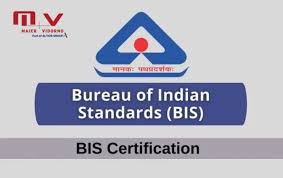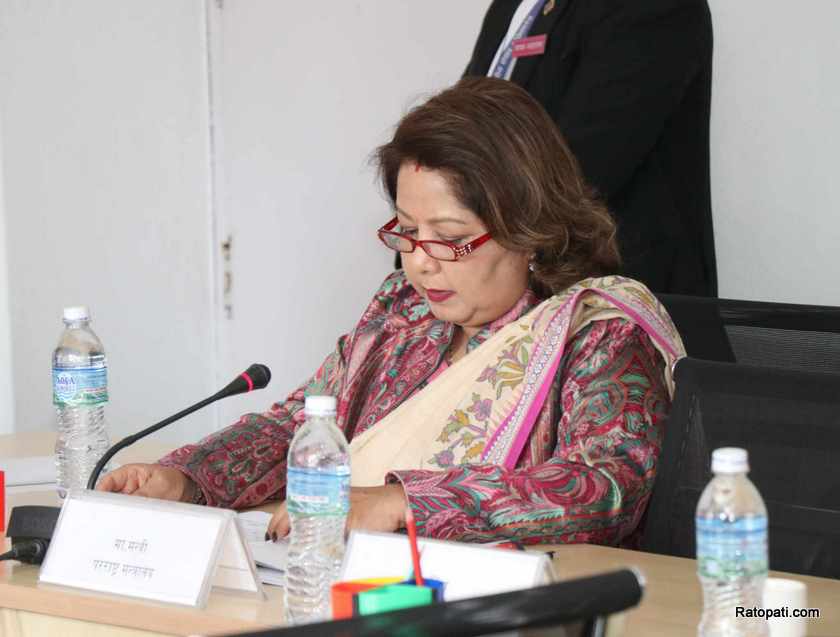India implements BIS certification requirement, hindering Nepali exports

Kathmandu, October 24 — Recently, India has introduced obstacles to the export of Nepali goods. Industry experts have indicated that the requirement for a Bureau of Indian Standards (BIS) certificate has impeded exports. This policy has particularly affected exporters of plywood, footwear, cement, sanitary pads, and other products from Nepal.
The BIS serves as a certification of standards recognised by the Indian government, and it is mandatory for the sale and distribution of any goods within India. However, industry stakeholders have raised concerns regarding the challenges associated with obtaining this certification.
India first implemented this requirement on October 1, 2023. A notice was issued on September 23, 2023, mandating BIS for imported sanitary pads and diapers. Subsequently, on March 24, 2024, BIS was applied to both imported and domestically produced goods.
In response, domestic manufacturers and foreign exporters voiced their objections. Consequently, the Indian government announced that BIS would not be required until September 30, 2024, after which it would be enforced. As a result, Nepali exporters have begun applying for BIS certification. However, Rudra Prasad Neupane, President of the Footwear Manufacturers Association of Nepal, has stated that the Indian government has been reluctant to issue the BIS certificates.
According to Neupane, the Indian government has instituted a process requiring inspections of factories and product quality to meet their standards for obtaining BIS certification. Nevertheless, he notes that no guidance has been provided to Nepali exporters regarding compliance with these standards.
“With regard to BIS, we are unaware of the specific Indian standards, and we have not been instructed on how to adhere to them,” Neupane remarks. “Gradually, exports are being obstructed. At this rate, it is conceivable that all exports may cease.”
India has implemented the BIS requirement primarily to substitute for the import of Chinese goods. This policy was adopted to address issues arising from the importation of low-quality materials from China that undermine the sales of Indian products. However, this has also adversely affected Nepal, as noted by Vinod Kumar Sethia, President of the Nepal Cross-Border Trade Association.
“India enforced the BIS requirement to prevent the easy importation of Chinese goods. However, it is inequitable for one country to be subject to regulations while another is not. This inconsistency has trapped Nepali exporters,” Sethia stated.
To resolve this issue, exporters are urging their government to intervene. The Federation of Nepalese Chambers of Commerce and Industry and the Confederation of Nepalese Industries have appealed to the government to lift the import bans on certain goods from India.
While India has not yet mandated BIS for all Nepali exports simultaneously, Sethia points out that it has been incrementally implementing this requirement for individual products.
Challenges in obtaining BIS certification
Nepali exporters are facing difficulties in navigating the process for obtaining BIS certification. Achieving quality standards in Nepal itself can take up to six months. Based on this timeline, obtaining BIS certification could also require four to six months. However, due to the ban on Indian milk imports, there are concerns that this timeline may not be feasible, according to Sethia.
“The Ministry of Industry, Commerce, and Supplies has indicated that the ban on Indian milk imports has hindered the distribution of BIS certifications,” Sethia explains.
In response to declining sales for domestic dairy farmers, former Agriculture Minister Beduram Bhusal imposed a ban on Indian milk imports. This ban, effective from February 16, 2024, remains in place until further notice.
The ban encompasses a range of products, including skimmed milk, unsweetened milk, butter, ghee, and various types of cheese that have not been processed.
These products had previously been exported to Nepal from India. However, following the complete ban in Nepal, India has been obstructing the distribution of BIS certifications as a form of retaliation, according to Sethia.
“This approach to halting milk imports is inappropriate. If only low-quality milk were banned instead of all dairy products, such issues could have been avoided,” he adds. “It would have been acceptable to specify quality standards, but the blanket ban on milk imports has made matters difficult.”
Facilitating the sale of local farmers' products is justified, but he argues that imports should not be completely prohibited. Sethia expressed hope that if milk imports were allowed, India would facilitate the distribution of BIS certifications.
Following India's obstruction, exporters are requesting the government to reopen milk imports while farmers are urging against any liberalisation. The government now faces the decision of whether to prioritise the benefits of milk imports or exports.
However, Rajan Paudel, Director General of the Department of Commerce, Supplies, and Consumer Protection, stated that the assumption linking the ban on milk imports to the obstruction of BIS distribution is merely speculation.
“We cannot definitively assert that the reason for the obstruction is the ban on milk imports, as India has not explicitly stated this. The assumption that the ban on milk imports is causing hindrances to Nepali exports is merely conjecture,” Paudel remarked.
He noted that immediate facilitation of exports is underway. However, he emphasised that the Indian government has indicated it will eventually impose restrictions on exports. “We have already raised this issue for discussion in the ministry and have drawn the attention of the Ministry of Foreign Affairs. Diplomatic initiatives are underway,” concluded Paudel.









Leave Comment